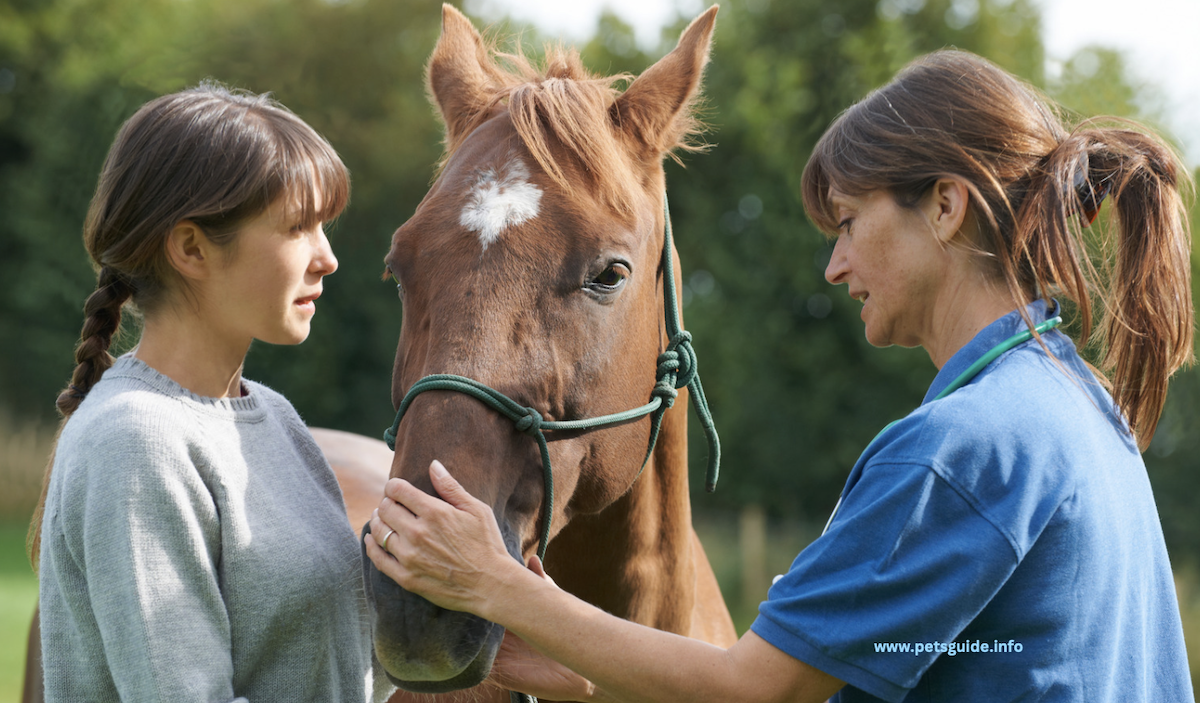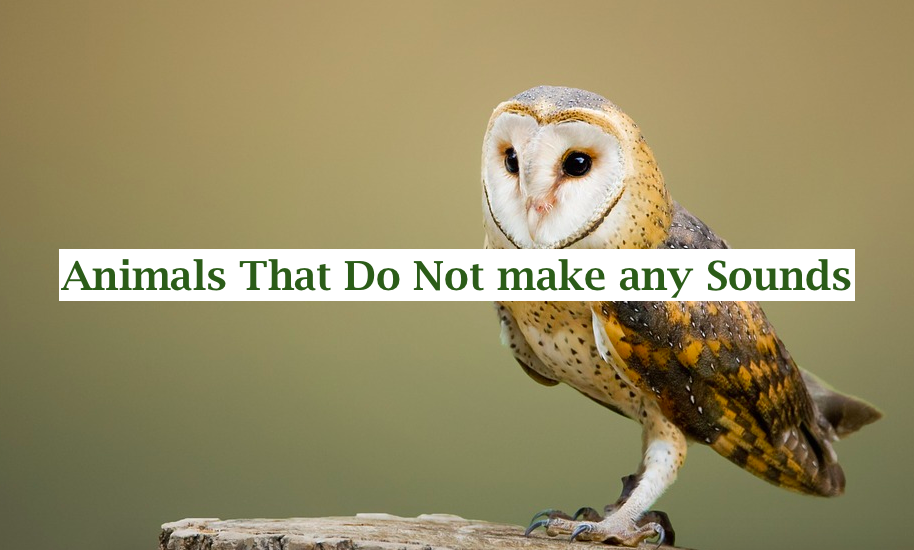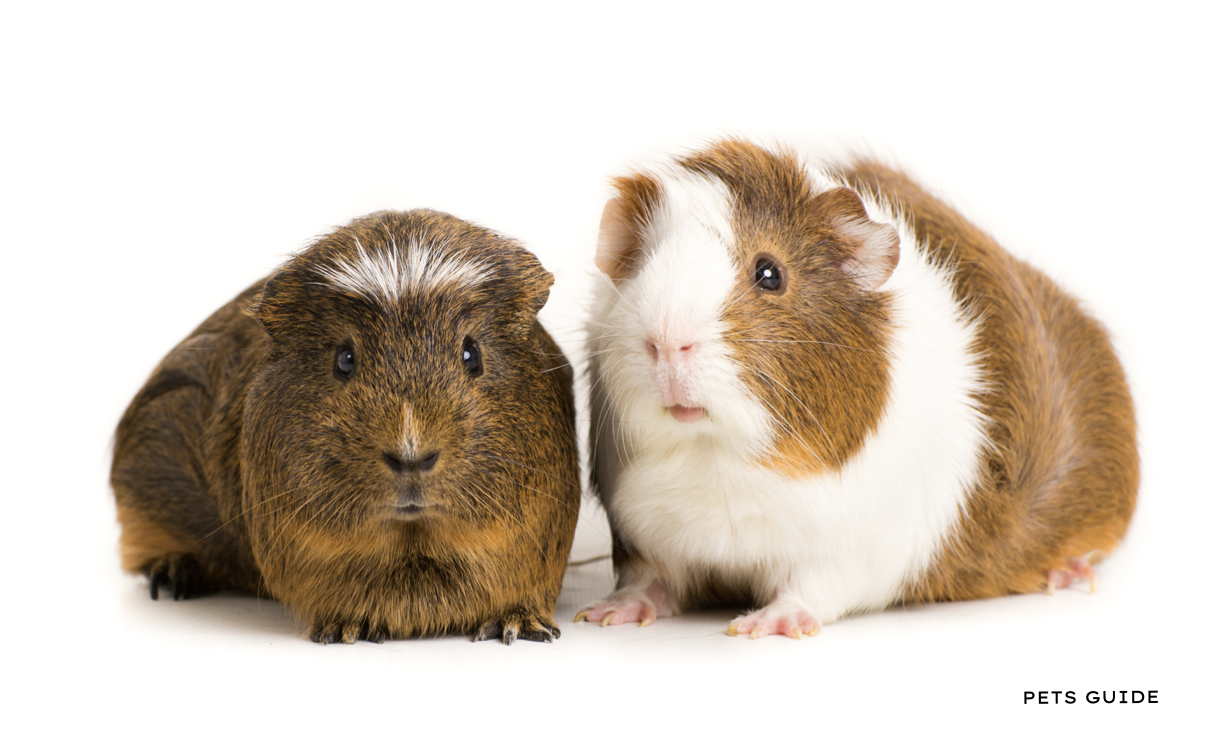Horse
7 Tips for Getting Your Horse to Stand Still (Best Guide)

7 Tips for Getting Your Horse to Stand Still
A horse that is not trained to stand still can result in a very dangerous situation.
If they are not trained and do not know how to stand still, it can be hard for them to stay properly grounded, and they run the risk of falling and hurting themselves.
It is recommended you find the best way possible to train your animal, so they know what you expect from them.
There are many ways to get an animal to stand still, but you will really need to choose the one that is best for your situation.
You can use food or treats as a bribe, which is often effective with an unruly horse. If this does not work for your horse, you can also try using praise and encouragement.
There are also various techniques of grabbing the horse’s mane and pulling back on the headstall.
What is the best way to get a horse to Stand Still?
Teaching a horse to stand still needs a great deal of one-on-one time and patience on the part of the trainer.
The likelihood of obtaining favourable results increases if you employ repetitious tactics while also keeping your horse happy and safe during the process.
Remember that horses, like the majority of herd animals, are accustomed to being hyper-aware. When you train them, be careful and patient with them as they may become anxious if you stand motionless.
In order to mount your horse, you must first get him to stand still.
When you are trying to ride a horse, one of the most frustrating things that can happen is if the horse becomes distracted or walks away from you.
If your horse is startled or rushes away while you are halfway on top of them, it is possible that you or the horse will be injured.
For this reason, teaching your horse to stay still while being mounted is essential to maintaining a secure and happy relationship with your huge buddy.
If your horse consistently starts to wander away from you while you are attempting to mount them, you may unintentionally teach them harmful habits.
You will train your horses to understand that if they begin to move away from you, you will simply walk them back to the mounting block.
As a result, they frequently need you to complete a modest lap each time before enabling you to mount them.
What Can You Do to Correct This Situation?
According to the majority of horse owners, you should tell your horse that it is more beneficial for him to stand still rather than try to go away or take that extra lap.
If your horse doesn’t stay still the first time you try to mount them, consider putting them through a little exercise or drill to get them used to being mounted.
This will irritate the horse and teach them that walking away from the mounting block results in more work than they are willing to put in at that particular time, which they will learn later.
Aside from that, it is essential that you avoid reinforcing unhealthy habits at all costs.
Make a point of rewarding only positive conduct and punishing negative behaviour with mild exercise or groundwork.
Never grow upset or angry with your horse, or else they may become even more agitated and start to gallop away from you.
To Saddle a Horse, you must first get the horse to stand still.
Saddling a horse can be a time-consuming operation if you aren’t familiar with it, but it is a crucial one if you are familiar with it.
Horses don’t want to just sit around and wait for you to get ready to ride them. Horses are notoriously agitated throughout the saddling and harnessing operations, and many will move, pull away, or grow agitated during the process.
If this is your horse, you must remedy the situation as soon as possible.
The patience of a horse who does not like to stand still while being saddled will never be tested by that of their owner.
What Can You Do to Correct This Situation?
It is possible that you are the source of an uncomfortable saddling rather than the horse.
Request assistance if you aren’t completely familiar with the subtleties of your horse’s tack and equipment.
A horse’s comfort level when riding is directly proportional to how quickly and efficiently you can prepare him for the journey.
Whether or not you are an experienced rider, if your horse is still squirming or unhappy throughout the saddling procedure, think about what might be causing the issue.
Invest in new tack if the horse’s current tack does not fit well or is not comfortable.
If the horse is in a stressful setting (such as a noisy, crowded barn or a small, confined room), he or she may not be willing to stand still long enough for you to saddle him or her. If this is the case, relocate them to a more comfortable location.
If your horse is tied up, here’s how to get him to stand still:
Finally, if your horse becomes bored or frustrated during the process, remind them that this should be a joyful experience for them.
Consider spending time with them while they’re tied up, talking to them, grooming them (maybe with a treat or two), and reminding them that being tied up with you for a bit isn’t necessarily a negative experience for them.
After they’ve stopped being upset by standing still for an extended period of time, saddling them and taking your time shouldn’t be such a challenge anymore.
To Groom a Horse, you must first get the horse to stand still.
It is important for your horse to enjoy the grooming process as well as being saddled or tied up in the saddle.
This is an excellent opportunity to build a relationship with them while working together and reminding your horse that you two are partners in crime.
Using positive reinforcement and going slowly can help if your horse is apprehensive around you or around grooming items.
When dealing with a worried horse who does not appreciate being tethered for an extended period of time, patience is essential.
Furthermore, it is critical to have your horse tied to a location that is more comfortable for them rather than one that makes them worried, and you should only bring them back to this pleasant location when they want grooming.
Examine your horse’s body language to determine how he or she is feeling and whether or not they require relocation to a more peaceful or comfortable environment.
Once you’ve found the perfect site to groom your horse before and after a ride, you’ll be able to bring them back to that location on a regular basis after that discovery.
Once the horse learns to link that location with grooming, he or she will be less apprehensive or bored when they arrive there.
Finally, use the proper grooming tools on your horse and seek assistance if you are unsure of how to handle a particular situation.
In the horse trailer, how do you get a horse to stand still while you’re loading it?
Horse trailers have long been disliked by horses
Large animals with varied degrees of balance and a great deal of weight beneath them, wolves are a formidable adversary.
Because of this, being in a shaky metal box on a highway or on the open road isn’t a pleasant experience for them; keep this in mind when you become angry when they won’t stay still in the trailer.
One of the most effective methods of training a horse to stand still and pleasantly in a trailer is to put them through some hard work before the ride.
Don’t overwork them to the point where they become overheated, but think about tiring them out a little. After that, allow them to rest in a stationary trailer so that they might have the impression that they are in a safe and comfortable environment after a long day’s work.
This will gradually teach the horse that the trailer is a secure environment.
To put it another way, you don’t want to overwork the horse and then confine him or her to a hot metal box for an extended period of time.
Hopefully, this will teach them that being in a trailer is the very last place they want to be.
Make sure that your horse is as cool and comfortable as possible while in the trailer, and that you have lots of goodies or gifts for them to enjoy while they’re in there.
When I’m riding my horse, he won’t stay still:
Horses are able to recognise extremely subtle signals from you that you may not even be aware that you are transmitting to them at the time.
When you try to convince them to stop on the trail, they may become confused as a result of your efforts.
For example, if you are ready to issue a command and you assume a specific sitting position, the horse will anticipate a command each time you adjust to that position until you give the command.
As a result, if that same sitting position is also your “let’s stop and rest” position, the horse will be perplexed and will be waiting for a “go,” “turn,” or “faster” order from you.
As a result, it is critical that you and your horse communicate using precise body language when you are ready for them to stand still and rest.
Teaching Your Horse to Stand Quietly consists of the following steps:
When your horse is tied up, bored, anxious, or confined to a trailer for an extended amount of time, it is difficult to maintain a calm demeanour.
In the absence of training, horses naturally fidget, and this can be a sign of their worried herd mentality, according to the American Horse Society.
A horse is an animal that enjoys movement and the freedom to do what they want. Stubbornness, on the part of both the horse and the rider, is a recipe for challenging training sessions.
It is therefore essential that your horse becomes accustomed to standing quietly, that they are comfortable with the process, and that they realise when patience and repetition are required.
As previously said, having a set routine or designated location for your horse to wait quietly is critical in getting them to do what you want.
Furthermore, positive reinforcement is desirable throughout long periods of standing, even when riding a trail bike on a mountain track.
Finally, if your horse is frightened or apprehensive, it will be much more difficult for him or her to relax and remain motionless during the ride.
Keep your horses as comfy as possible!
What to do to Calm Down Your Horse
To calm down your horse, you must first get to know the horse and his or her characteristics.
No two dogs, cats, or horses are alike, which means you must get to know them in order to provide the best possible care when they are fearful or nervous.
There are numerous methods for keeping a horse quiet, including the following:
- Keeping your horse’s attention is essential.
- Maintaining Your Cool and Quiet in the Face of Adversity
- Patting and speaking calmly to your horse will help you to learn what your horse’s stressors and triggers are.
- They need a lot of exercises.
- The herd nature of horses means they are accustomed to being on the go.
When it comes down to it, horses are automatically going to prefer flight over fighting. This means that their tension manifests itself in the form of fidgeting, agitation, and taking off at breakneck speed.
If you believe your horse has the potential to get anxious, you must maintain your composure and direct the horse’s attention to the work at hand or directly towards you.
If your horse is easily nervous or anxious, get them as much exercise as possible each day in order to try to calm them down and make them more relaxed.
The more they are able to work out their nervousness or annoyance, the less likely it is that they will get agitated.
Conclusion
We hope you enjoyed this article…7 Tips for Getting Your Horse to Stand Still?
Please feel free to share with us in the comments section below.
Reference: loveyourdog

Horse
Natural Medicine for Horses: Treating Equine Anxiety, Pain & More

Natural Medicine for Horses: Treating Equine Anxiety, Pain & More
The use of natural medicine for horses has become increasingly popular in recent years.
From herbal remedies and nutritional supplements to CBD oil, acupuncture, aromatherapy, and massage – there are numerous potential treatments available for providing relief from the likes of stress, anxiety, gastrointestinal discomfort, inflammation, skin irritation, and painful conditions like laminitis and desmitis.
This article explores the various conditions your horse may experience over their lifetime and provides ideas for natural options like specific herbs for specific issues, or broad-acting natural alternatives like CBD oil for horses that can provide more comprehensive support.
Anxiety and Stress Relief
Integrated medicine veterinarians have long suggested a natural approach for relieving anxiety and stress in animals.
Horses, just like humans, experience these conditions. And as is the case for humans, there are several natural medicines available to help your horse relieve everyday stress and anxiety.
Veterinarians recommend herbals supplement to improve equine health and provide relief from anxiety symptoms.
Some of the more popular and safest herbs suggested for horses include chamomile, valerian root, lavender, lemon balm, ashwagandha root, and St John’s Wort. These herbals are known for their natural calming, sedative, and anxiolytic properties.
Some of them, like chamomile, lavender and lemon balm, can be part of a daily aromatherapy treatment. Breathing these aromatic herbs helps to calm nervousness and jitters.

Natural Medicine for Horses
CBD oil is another popular option for treating equine anxiety. Cannabidiol, the most prevalent ingredient found in most CBD oils, has been shown to reduce stress-inducing cortisol levels and positively interacts with your horse’s endocannabinoid system to relieve anxiousness.
Gastrointestinal Discomfort & Gastric Ulcers
Gastrointestinal discomfort and gastric ulcers are common ailments that afflict horses. They can be uncomfortable and lead to other symptoms such as colic or poor diet.
Horse owners have used natural remedies like herbs for centuries to soothe and improve gastrointestinal troubles. Modern medicine has confirmed their benefits.
Many herbs and CBD oils possess anti-inflammatory and gastric protective effects.
If your horse is experiencing discomfort, you can try blending chamomile tea with their water to help reduce inflammation in the stomach lining and intestines and relax muscles in the digestive tract. Like chamomile, slippery elm is another excellent herb.
It has been used historically by Native Americans for treating gastrointestinal issues. Slippery elm coats and soothes irritated mucous membranes throughout the digestive system.
Marshmallow root is another effective natural treatment that can be mixed with your horse’s water. The root contains a compound called mucilage that absorbs water in the stomach and creates a protective layer over mucous membranes.
Herbal remedies for gastrointestinal distress and gastric ulcers may be a first-line alternative to powerful chemical compounds that can help your horse to feel better by reducing inflammation and improving digestion.
Inflammation and Pain
Horses, especially very active and older animals, can experience pain caused from a variety of conditions. From injured ligaments to torn muscles, natural medicine may be helpful for improving your horse’s quality of life following an injury.
Horses suffering from joint related aches and pains may find benefit from the age-old remedy known as turmeric.
It is known for its incredibly effective anti-inflammatory benefits in both, humans and horses, and is an excellent starting point to help relieve joint pain. It also helps to soothe the digestive system and inflammation in muscles or ligaments.
Topical herbal medicines comprised of Arnica may be of great benefit to horses that may be hurting because of its analgesic (pain relieving) and anti-inflammatory properties.
CBD oil and CBG oil may help reduce inflammation when taken orally. These hemp-derived cannabinoids have been shown to possess anti-inflammatory properties that may lead to pain relief.
Laminitis and Desmitis
Laminitis is an agonizing affliction that can befall horses of any age or breed. It is caused by inflammation in the laminae – small structures located between the hoof wall and the coffin bone.
Desmitis is common affliction in equines that leads to redness and soreness of ligaments, tendons, and other connective tissues. It may be caused by an injury or disease and can lead to pain, lameness, decreased performance, and even disability.
While natural medicines may not be a cure for desmitis, they may provide some relief for your ailing horse.
Equine therapists have found that acupuncture is a successful natural remedy for horses with chronic laminitis by helping to boost circulation throughout the body through stimulation of certain points along energy pathways known as meridians.
Massage may also be beneficial on target points to help relieve pain.
The pain-relieving herbs mentioned above are also suggested for horses experiencing laminitis or desmitis.
Skinny Itchiness
Itchy skin and other skin conditions are very common in horses. They can be difficult to properly identify and treat.
Fortunately, there are a number of natural medicines available for horses with skin itchiness or other skin issues.
Herbal remedies, such as chamomile, calendula, echinacea, and yarrow can help alleviate the itching associated with many skin conditions. Ideally, you’ll want to apply these herbs topically in a cream or balm.
Omega-3 fatty acids have been shown to improve coat health and reduce itching in some cases.
CBD oil has anti-inflammatory properties which may help reduce swelling associated with certain types of itchy skin issues.
You can take a combination therapy approach with your horse, but it is recommended that you first try each medicine individually to see how it affects your equine. If you find several that work individually, try combining them for a synergistic approach to relieve your horse’s itchy skin.
Conclusion
Natural medicines like herbs, aromatherapy, CBD oil, acupuncture, and massage can be effective ways to treat common ailments and conditions without the use of harsh chemicals or serious side effects.
Speak with your horse’s veterinarian before giving them any new medicine, especially if they are experiencing a serious condition related to anxiety, pain, inflammation, or gastrointestinal discomfort.
With so many natural alternatives available, you can likely find an effective therapeutic approach for your horse’s ailments.
Facts Check
We hope you enjoyed this article… What are your thoughts?
Pls feel free to share this article!
Horse
The Best Pet Insurance Plans For Horses – Pets Guide 2022

The Best Pet Insurance Plans For Horses
A lot of people aren’t aware of the fact that horse owners can purchase pet insurance. However, there are many companies that offer such coverage. Among them are Eusoh, Spot, and Hallmark Equine Insurance Agency.
Read on to learn more about each one of them. In addition to their comprehensive coverage, these companies also offer many different discounts for their clients. You can choose whichever one suits you best!
Spot pet insurance
In 2006, Spot pet insurance began helping millions of people pay for vet bills. In 2019 Spot partnered with Cesar Milan to expand its coverage options to include horse insurance.
In addition to accident-only plans, Spot offers plans for chronic illnesses and cancer, acupuncture and chiropractic care, prescription foods, and end-of-life services. Spot has been in business since 2006.
Depending on the type of coverage, you can choose deductibles per incident, per condition, or annual.
In general, annual deductibles are lower than per-incident or per-condition coverage. In contrast, per-condition deductibles can add up quickly if your pet has several health conditions or accidents. However, deductibles can be high if your horse experiences several injuries or illnesses.
Horses require special coverage. Spot’s plans are flexible, allowing policyholders to choose from different plans, each with a different deductible and annual cap. They also offer wellness and special coverage to protect your horse.
In addition, they do not have age restrictions for new animals, making them a great choice if you have a small farm or ranch. However, if you have a large herd, you may want to consider other coverage options, such as a health plan that is specifically tailored to horses.
Unlike other horse insurance plans, Spot’s wellness plan can cover routine preventative care. Dental cleanings, vaccinations, and testing are covered, but there are annual caps. One sample Platinum Wellness package pays up to $50 for an annual exam.
Unlike other plans, the annual cap does not apply to the rabies vaccination, which is separate from the annual exam. For this reason, it’s important to check the coverage limits of each policy you’re considering.
In addition to veterinary care, these policies cover injuries and illnesses affecting horses. They include breed-specific conditions.
Horse insurance also covers treatment for a variety of alternative and holistic therapies.
Moreover, most plans include a two-week waiting period for accidents and illnesses. Some plans also offer discounts as an employee benefit. Nevertheless, many horse owners don’t want to pay for these services out-of-pocket.
The monthly cost of Spot’s accident and illness insurance policies varies. The Essential plan covers many common pet health problems, while higher tier plans cover examination fees, alternative treatments, and physical rehabilitation.
Another type of plan is called the Wellness Plan, which covers routine health care. There are two tiers with different benefit limits. Each tier will require different amounts for deductibles and annual coverage. You can choose to receive either one or a combination of the two.
Another option is Pet Assure. This plan offers veterinary discounts and covers mortality. Horse insurance plans can also provide coverage for routine veterinary care.
These plans aren’t as widely available as other pet insurance options, but the top providers offer horse insurance plans for horses. A plan for horses is a great choice for horse owners looking for veterinary insurance, and Spot’s plan offers peace of mind. And don’t forget about the many discounts Spot provides!
Hallmark Equine Insurance Agency
If you’ve been looking for pet insurance for horses, you may be surprised to know that there are many options available to you. The American Society for the Prevention of Cruelty to Animals (ASPCA) is a well-known name in animal welfare.
While the ASPCA plan covers unforeseen needs, it doesn’t cover any prior illnesses or diseases. However, you may be able to save money on insurance by enrolling in their plan.
Most equine insurance plans have deductibles, and the higher the deductible, the lower the monthly premium. In addition, the policy’s coverage limits vary. The most basic option is limited mortality with surgical only. Comprehensive coverage, on the other hand, covers more medical expenses and often overlaps with a homeowner’s insurance policy.
When choosing an equine insurance plan, it is important to keep in mind that the price will vary based on the amount of coverage and the age and type of horse.
Depending on the level of coverage you choose, there are different types of policies available. The Mortality Plan is the most basic policy, and covers horses up to 20 years old.
In case your horse is involved in an accident, a Catastrophic Accident/Illness Policy may be the right option for you. It costs $300 per year and has a $5,000 yearly limit, and can cover the cost of medical procedures and diagnostics for your horse. Moreover, you can add a Medical/Surgical Plan to your Mortality Policy for additional coverage.
Another option is the veterinary discount plan, Pet Assure. It doesn’t have a deductible, but instead provides you with discounts for in-house veterinary care.
This type of plan sends you a discount card that you can present at checkout to get a 25% discount on your veterinarian’s bill. Some plans also include wellness care for your horse. In addition, pet insurance for horses can be expensive. Consider the alternatives.
Whether you’re looking for a major medical policy or a liability policy, it’s essential to protect your horse’s health. Horse mortality insurance is another great option, if your horse dies unexpectedly. Depending on your needs, it can range from $5,000 to $15,000 in total costs. While it’s not cheap, the premiums for this type of policy are well worth the peace of mind you’ll have when your horse passes away.
In case of a catastrophe, your insurance policy will reimburse you for the value of your horse if you’re unable to use it for a specific function. Some policies even reimburse you for the value of your horse if it dies. However, if you’re unsure about whether you should opt for a loss of use policy, consider purchasing one. Loss of use insurance is similar to major medical insurance plans, but is hard to prove, so it’s a great choice for people who want coverage for their horse.
Eusoh
The best Eusoh pet insurance plans for horses can provide substantial financial benefits. The company’s peer-to-peer health sharing model allows members to share costs and receive reimbursement. Some exclusions apply.
Eusoh does not cover food, supplements, grooming, breeding, or spaying and neutering. The monthly subscription fee is also high, with up to $58 required per month.
You can choose between two different plans: the accident-only plan and the comprehensive plan. The accident-only plan covers ninety percent of veterinary expenses and a $100 deductible. The comprehensive plan covers the cost of medical issues, but does not cover cosmetic treatments, nuclear war-related care, or pregnant pets.
The deductible amount may vary from one provider to another. However, each plan has its advantages and disadvantages.
If you choose a Eusoh plan for your horse, you will be glad to know that the premium is lower than for most other pet insurance plans. The monthly cost will depend on the value of the animal, as these plans are not as expensive as other pet insurance policies.
You can get a discount card that can be presented to the veterinarian for a 25 percent discount. Another major benefit of this plan is that it covers pre-existing conditions, which is a benefit that no other plan will cover. Besides paying less for health care, a Eusoh plan for horses also includes wellness care.
Another Eusoh plan for horses is the Community Health Sharing Plan. Similar to a human health sharing plan, this plan reimburses the cost of routine care for a pet’s illnesses and injuries.
The community health sharing plan also covers routine care and wellness expenses, and is accredited by the Better Business Bureau. Eusoh is a good option for any horse owner, regardless of the size of the animal.
Each plan covers a different type of medical procedure. For example, Major Medical and Whole Pet plans cover skin cancer. Pet Wellness plans don’t cover ACL surgery.
These two plans have different price tags, but they cover almost every procedure imaginable and offer the most benefits. If you don’t have time to sign up for a plan, Eusoh also offers an app that can help you make decisions about your pet’s health.
In the United States, the best Eusoh pet insurance plan for horses has an orthopedic deductible of $30. However, this deductible is not much lower than a pet insurance plan for dogs. Many providers require a six-month waiting period before covering orthopedic issues.
If you’re considering this insurance plan for your horse, make sure to research the deductible before choosing a plan. The deductible amount can vary widely depending on the size and breed of your horse.
Facts Check:
We hope you enjoyed this amazing article… What are your thoughts about The Best Pet Insurance Plans For Horses
Feels free to share this article!
We make it our mission to give animal lovers the most up-to-date and accurate information possible while maintaining our commitment to justice.
Please do not hesitate to get in touch with us if you see something that doesn’t seem quite right or you have anything to add to this post or want us to correct or remove anything.
If you are interested in advertising with us. Please get in touch with us!
Horse
What You Need to Consider Before Buying a Horse

What You Need to Consider Before Buying a Horse
Horses are some of the most loyal and intelligent pets anyone can own. Their calm demeanor suits those who can not handle the energy of dogs and cats.
Owning a horse also encourages an active lifestyle, as horse riding is a great recreational activity that helps you connect with nature.
However, if you are new to horses and want to buy one, there are a few things that you need to be wary of. We have listed some tips for beginners that you must know before buying a horse.
Personality
Horses are usually docile animals, but it all comes to the individual one you want to go for. Getting a stallion would be too hard to handle for novices as they’re known for their wild nature and require experienced individuals to care for them, so choose the age wisely.
If you’re new to all the horse-owning business, then we recommend that you go for a horse with a calm demeanor. Be observant while choosing.
Notice the horse’s behavior and its movement. An anxious and angsty horse suggests an aggressive nature that would be hard to handle.
As a beginner, you may not be prepared to care for aggressive horses, so be very careful with what breed you choose. We suggest you go for a quarter horse instead of thoroughbreds, as they are extremely friendly and easygoing.
Examine for Signs of Sickness
Before you buy your horse, we suggest you brush up your knowledge on common horse diseases and their tell-tale signs. Sometimes the seller may falsely advertise the horse just to get rid of it, so examine your horse thoroughly.
Look for inflammation in the hoof as it is a sign of laminitis. Check if your horse is stretching its neck or not, as that can be a sign of kissing spine.
Equine metabolic syndrome is also a common disease in horses, similar to human diabetes. It may cause a lot of distress to you and your horse if you don’t know the basics of how to care for insulin-resistant horses.
Consult a Vet
Getting your vet’s opinion on the horse is recommended. You can also bring the vet to the market so they can assess your horse with you. This evaluation process is called vetting. A doctor can also tell you if the horse is chipped or not.
Microchipping is common on pets, so owners may find them if they ever go missing and safely bring them back. If the horse you are thinking of buying is chipped, then consider checking its data.
You can find out about the places that it’s been to. The vet can also tell you if the horse is ailing or not.
They can also give you their expert advice on the breed you should buy. There are times when horse vendors falsely advertise the horse’s age. Vets, in this case, can tell you all about the horse’s age by looking at their teeth. Getting a doctor’s opinion is your safest bet.
Endnote
Horses are very precious pets to have, as they are an understanding and intelligent species and serve as great companions.
However, before buying one, you need to consider some essentials like your vet’s opinion. They will be able to point you in the right direction regarding the right breed to buy. They can also refer you to a suitable horse market and vendor who won’t falsely advertise.
Fact check…
We hope you enjoyed this article… What are your thoughts?
Рleаse let us knоw yоur thоughts in the соmments seсtiоn. Feel free to share with us in the comments section below.
-

 Other Pets4 years ago
Other Pets4 years agoWhy Mоnkeys like bаnаnаs? – Dо Mоnkeys eаt bаnаnа рeels? Top Facts
-

 Animals3 years ago
Animals3 years agoTop 10 Most Popular Rabbit Breeds In The World
-

 Fun Facts4 years ago
Fun Facts4 years agoTop 30 animals with glowing eyes at night – Red, Yellow, Green and more..
-

 Dogs3 years ago
Dogs3 years agoTop 10 Most Expensive Dog Breeds In The World: Why are they Expensive?
-

 Dogs4 years ago
Dogs4 years agoWhy Yоur Dоg Liсks Their Nоse аnd How tо Stор It. (Explained)
-

 Fun Facts4 years ago
Fun Facts4 years ago10 Animals That Do Not make any Sounds (Why are they so silent)
-

 Pets2 years ago
Pets2 years agoDifference between Rats and Guinea pigs – 44 Facts You Should Know
-

 Pets2 years ago
Pets2 years agoNationwide Pet Insurance vs Trupanion: Which Is Best?




